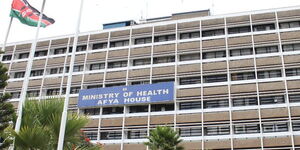The Ethics and Anti-Corruption Commission (EACC) has directed all public officers to declare their wealth before the end of the year as part of a broader strategy by the government to curb corruption.
In a notice issued by EACC Chief Executive Officer Abdi Mohamud, all public officers are required to declare their income, assets and liabilities between November 1 and December 31.
This follows the implementation of the Conflict of Interest Bill 2025, which came into force in August this year, with the intention of regulating conflicts of interest among public officers.
According to EACC, all state and public officers must fill out a wealth declaration about themselves, their spouses and children who are below the age of 18.
"State and public officers are required to fill and submit a declaration of income, assets and liabilities of themselves, their spouses and dependent children below the age of 18 years," the notice read in part.
"For clarity of information on any material change, 'material change' is defined in section 37(4) of the Act, which declarants must familiarise themselves with before filling and submitting their declarations," it added.
Mohamud noted that submitting wealth declarations is a public officer's personal responsibility and will be personally liable for the accuracy and truthfulness of the information they provide.
The EACC boss stated that the Commission will then analyse the declaration to ascertain its completeness and correctness, and verify whether it raises possible issues of conflict of interest.
He specifically said that the Commission will assess whether, upon declaration, the submissions by the public officer contain any discrepancy or inconsistency.
Mohamud revealed that from January next year, EACC will seek any clarifications from the declarant on any information that could have been omitted, or to explain any discrepancies or inconsistencies in the declaration.
He went ahead to assure safe custody and storage of the declarations, and retained declaration information collected under the Act for at least five years after the declarant ceased to be a public officer.
Further, public officers who fail to comply with any of the requirements for declaration of income, assets and liabilities would face necessary disciplinary measures.












